Period:
Yugoslav Wars
Region:
Estern Slavonia
The Croatian criminal Blago Zadro - Vukovar 1991
Blago Zadro (1944-1991) was an active participant in the civil war in the AVNOJ Croatia during the break-up of socialist Yugoslavia in the early 1990s. He served as a commander of the Third Battalion of the 204th Vukovar Brigade, which had an operational zone in Borovo Naselje around Trpinjska Cesta. His code name was "Snipe." He was also highly positioned in the militant party of the Croatian Democratic Union for the region of Vukovar, and was a close associate of Tomislav Merčep.
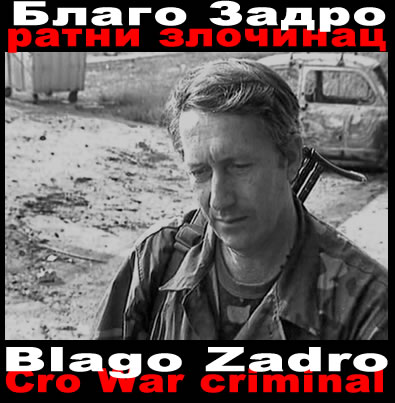
He was born and raised in the Western part of Herzegovina (the famous Croatian-fascistic region), from where, as a boy, he moved to Borovo Naselje with his parents. Later, there he got a job and started his own family. He died in the fighting for Vukovar on October 16, 1991, on Kupska Street. A burst of machine-gun fire cut him down and he was taken first to the headquarters, and later to the Vukovar hospital, where he was pronounced dead.
His eldest son Robert Zadro (1969-1992) was also in the Vukovar ring from where fled. Robert died in battle with the Serbs in Kupres (Bosnian Krajina) during the Bosnian-Herzegovinian war.
BIOGRAPHY
As son of Jozo and Mila, Blago Zadro was born on 31st March 1944 during WW2, in the village of Donji Mamići (Grude municipality), the region of the Western Herzegovina
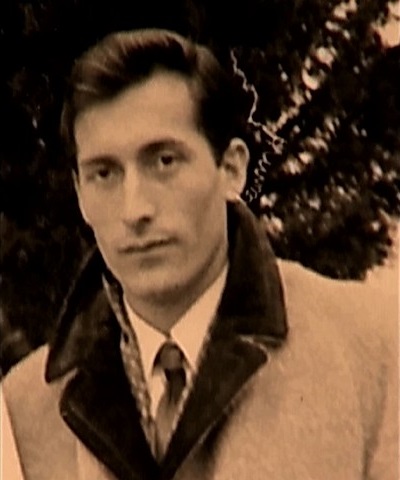
After returning from the army ...
His father Jozo and close relatives were in armed militias (Ustashas and home guards) of the clerical-fascist Independent State of Croatia. Trying to avoid an investigation into their bloody raids on the Serb population in Herzegovina, they moved to Eastern Slavonia in 1954 and settled in Borovo Naselje. There was a tire and footwear factory which employed a large number of workers, including Zadro's parents.
His childhood in his new environment was quite turbulent, and he frequently caused incidents and problems with his peers. He also often sang Ustasha songs that were banned, and he was taken to the police station for an informative conversation. He regularly went to Catholic Church for Mass.
In the early 1960s, Blago Zadro went to Austria illegally, as did many of his Croatian peers. Croatian-Ustasha emigration was active there, preparing numerous actions against the Yugoslav state and diplomats. He spent months in a Croatian camp which conducted training for terrorism and combat. Zadro also underwent additional command training there. He was soon arrested and returned to Yugoslavia, where he served his military service.

With his son Robert in the seventies
He returned to his homeland and, in 1967, he married Katica Soldo, originally from Herzegovina. On October 17, 1969, their first son Robert was born, and then two more sons. They later moved out of their parents’ home and built a house on Bosanska Street.
What is interesting in his work biography is the sudden acquisition of days off during the visit of Josip Broz Tito, from the factory "Borovo" where Blago Zadro was employed as a worker first in Kartonaža, and later in the plant Valjara.
POLITICAL ENGAGEMENT
In the late 1980s, there was a change in the socio-political system in Yugoslavia. The multi-party system was introduced, that is, in addition to the League of Communists, other parties were given the opportunity for political activity.
At that time, the founders of the militant party Croatian Democratic Union (HDZ) entered the scene in FR Croatia: Franjo Tuđman, Vladimir Šeks, Branimir Glavaš, and others. They had files in the Security Service and were considered to be "internal enemies". They gathered people of pro-Ustasha thinking and action.
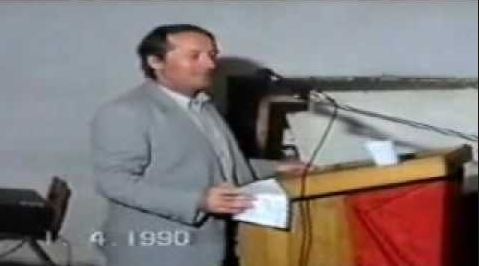
The HDZ committee was established in Vukovar in February 1990, and Tomislav Merčep was elected chairman of the committee. His first deputy was Blago Zadro, in charge of Borovo Naselje. He often "raised strikes" in the factory and asserted workers' rights. The goal was to destabilize the communist government.
In the spring of 1990, in the local elections (April and May), his party HDZ suffered a convincing defeat at the local level - only 26% of the seats, while the Communists won 64% of the vote. Jovan Rašković's SDS (Serb) party did not participate then.
Zadro was elected local HDZ councilor in the municipality of Vukovar. One of his first actions was to change the name of the local community where he lived. Instead of "Brotherhood and Unity", they named it MZ "Alojzije Stepinac", after the Croatian cardinal of the Roman Catholic Church during the NDH, when many Serbs were killed, expelled, or converted to Catholicism; in which Stepinac was instructed because he was a close associate of Ante Pavelić, a confidential agent of the Vatican.
As political means did not bring about the desired results, Merčep, Zadro, and associates switched to armed rebellion. More precisely, in the fall of 1990, the Government of the Socialist Republic of Croatia illegally imported a large number of weapons from the former Warsaw Pact countries, for the needs of the members of the HDZ and the reserve militias of the Croatian Ministry of the Interior.
In the village of Bogdanovci in February 1991, Tomislav Merčep, together with Blago Zadro, lined up 2,000 Croats and distributed Kalashnikov AK-47s with ammunition. This is how paramilitary formations were created.
CRIMINAL ODYSSEY
During the spring of 1991, tensions between Serbs and Croats in eastern Slavonia rose to the highest level. The Croats were armed to the teeth, and the Serbs expected the protection of the JNA ...
As there was no protection, and the Croatian police began harassing respectable and wealthy Serbs, the arming of Serbs began, mainly in the surrounding villages. The liquidations of Serb civilians (Stevan Inić, Jovan Jakovljević, etc.) also began, which led to the appearance of barricades, ie the felling of logs on the roads.
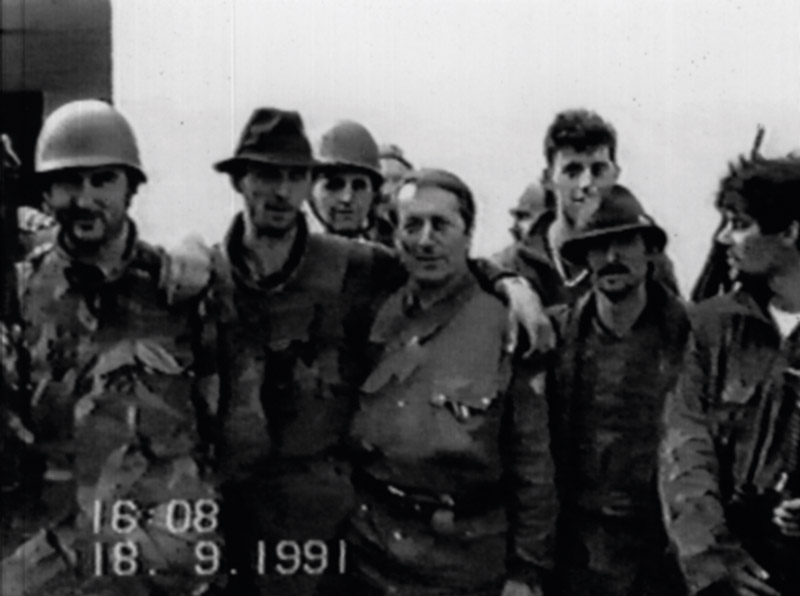
Zadro's punitive expedition in Borovo Naselje
After the armed conflict in Borovo Selo on May 2, 1991, it was clear that war was at hand. Radio Vukovar was forcibly taken over and an anti-Serbian campaign began.
Blago Zadro, together with his soldiers, performed ethnic cleansing of Serbian houses in the summer of 1991 before the war operations, such as Kozaračka Street, Kriva Bara, Budžak, and others. They had maps of Borovo Naselje, on which Serbian houses were marked. They broke in illegally (without a court order) and robbed, arrested, and killed people.
During the war operations, he was in charge of "defending" Trpinjska Cesta from the incursion of JNA tanks, which he did successfully for weeks. He managed to disable JNA tanks and armored personnel carriers using "zolja" rocket-propelled grenades, mostly because they were left in the clearing. That lead to orders to retreat. As the infantry could move faster than the armored vehicles, the retreating vehicles became an easy target for Zadro.
Liquidations of Serbs who remained to guard their houses were also carried out by the ring. His son Robert and Tomislav joined the "defense of Vukovar", and the elder son Robi was given command of the "Turbo Water".
DEATH
On the morning of October 16, 1991, it was reported that JNA units were attacking the Bobotski Canal, more precisely that the ring had been breached near Vinogradsa Street. He went there with his comrades-in-arms and was cut down by a machine-gun burst.

His comrades-in-arms pulled him out and took him to their headquarters, and then to the Vukovar City Hospital. There, the doctor Dr. Juraj Njavro declared him dead. He was originally buried in the old cemetery, next to the hospital, and only five people knew about that hidden location.
AFTER DEATH
Marko Babić took command of his unit. After the liberation of Vukovar on November 18, 1991, his son pulled out secretly with a couple of people towards Nuštar. Vinkovci thus avoided arrest and trial before the JNA investigative bodies.
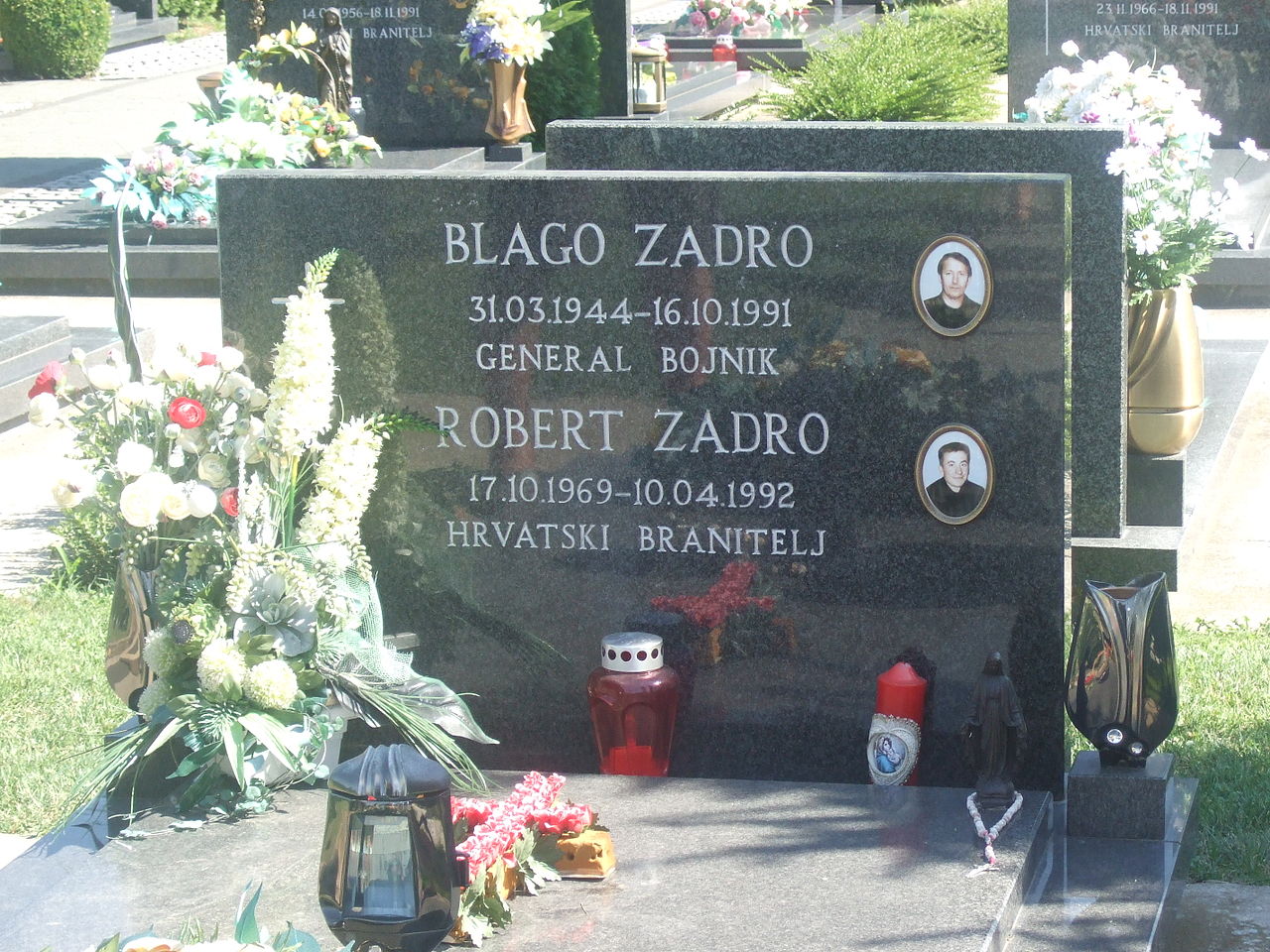
Blago's grave in Veterans Alley
Only in 1998, after the peaceful reintegration of the eastern part of RS Krajina into the constitutional order of the Republic of Croatia, his remains, as well as his son's, were transferred to the Vukovar City Cemetery in the Alley of Croatian Veterans, with all military honors.
LEGACY
Blago Zadro was posthumously promoted to the rank of Major General of the Croatian Army. Several monuments were made to him, including on Trpinjska Cesta in Borovo Naselje. The military school in the Croatian capital bears his name and was given streets in Borovo Naselje, Split, Grude, Posusje, and Zagreb.
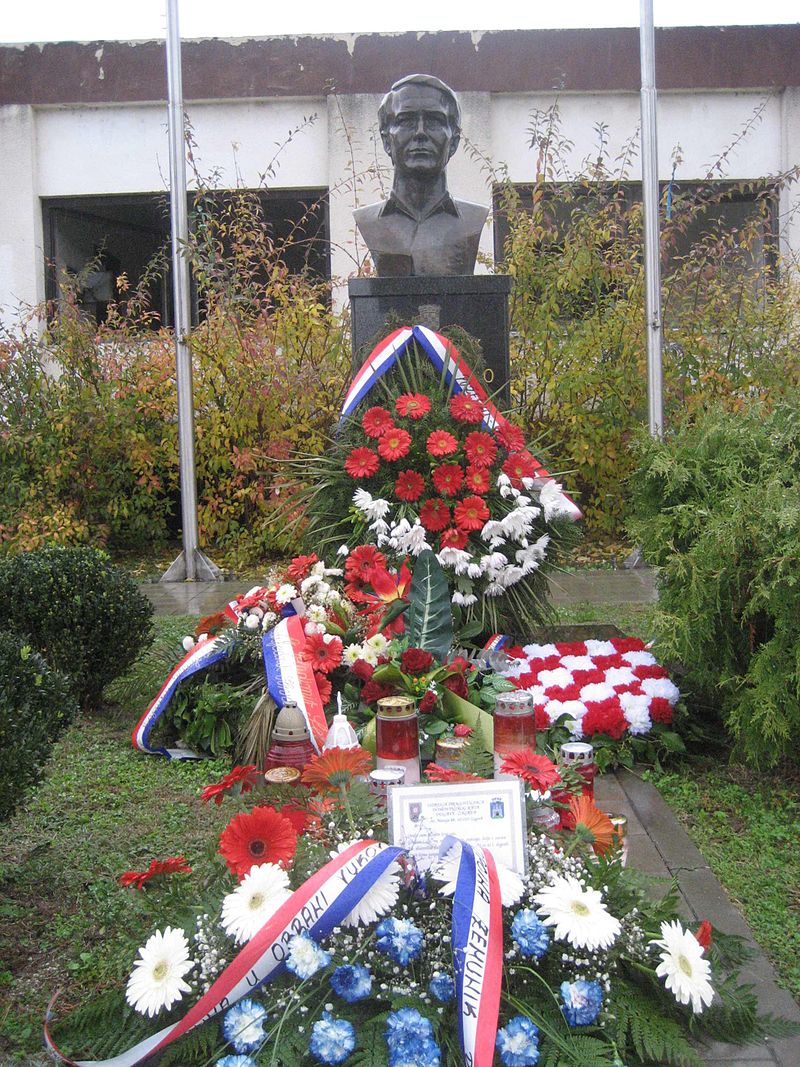
There are plans to create another large monument at the place of his death. The "Radnički" football club from Borovo has been organizing a tournament under his name for years. Many Croatian fan groups show his pictures and messages at matches and print his image in graffiti.
Tags:
Please, vote for this article:
Visited: 6478 point
Number of votes: 24
|